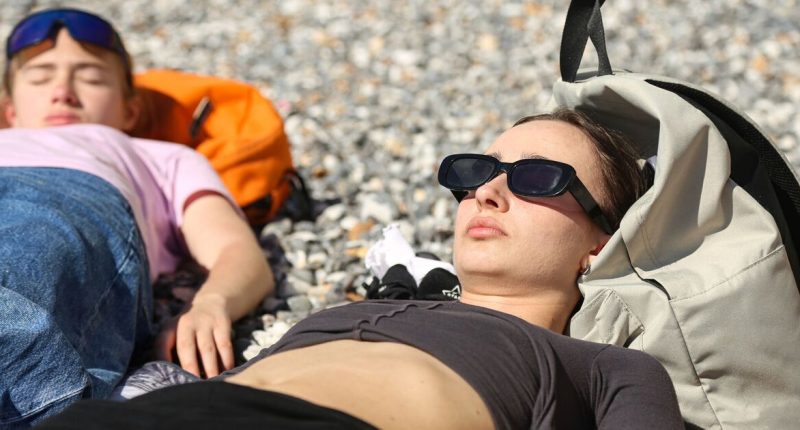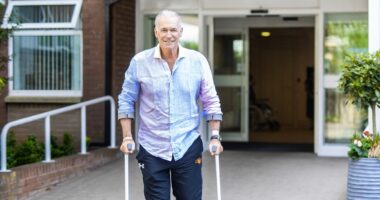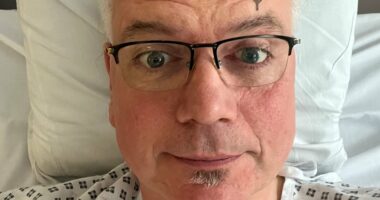Share this @internewscast.com
Following the sunniest spring on record, and with the Met Office forecasting a hotter than average summer, many individuals are eagerly basking in the sunshine. However, these sunny days hold a grave risk of skin cancer.
Every year around 17,500 people in the UK develop skin cancer. The figures, from 2017-19 showed there was an average of 2,341 deaths as a result. Cancer Research UK states that 86% of skin cancer cases can be prevented, largely by being sensible in the sun, starting with the use of sunscreen. Dr Alexis Missick, a GP with UK Meds, provided guidance on how to apply sunscreen effectively to minimise your risk of skin cancer advising: “Be generous and thorough.
“Don’t overlook areas like your ears, nose, and scalp, as these spots are particularly susceptible to burning. Reapply every two hours, especially after swimming, sweating, or towel drying, as these activities can diminish the effectiveness of your protection.”
She also clarified what SPF actually means: “(It) indicates how much longer you can safely stay in the sun. For instance, SPF 20 allows you to remain in the sun 20 times longer than without protection, while SPF 50 provides even greater protection.”
The doctor pointed out that most adults require approximately 30ml of suncream to cover their body, and it should be applied 10-15 minutes before stepping into the sun and then reapplied throughout the day.
To ensure you’re not applying ineffective suncream, always check the expiry date before use.
When purchasing a new bottle, opt for a cream that offers protection against both UVA and UVB rays.
The sun emits both UVA and UVB rays. UVB rays are responsible for tanning and sunburn, but excessive exposure can lead to serious issues such as skin cancer and premature ageing.
UVA rays, on the other hand, penetrate deeper, contributing to long-term problems like pigmentation, wrinkles, and an increased cancer risk.
Dr Missick emphasized: “Despite skin cancer being the most common form of cancer in the UK, many still underestimate the dangers of sun exposure.
“It’s easy to forget, but spending too long in the sun without proper protection can cause irreversible damage, even on cloudy days. To keep your skin healthy and protected, stay in the shade during peak hours, wear protective clothing and hats, and never skip the sunscreen.”
Dr Missick also urged people to be vigilant about early signs of skin cancer, including:
- Sore red lumps
- Dark skin patches
- New moles
- Changes to existing moles
- Moles that may be itchy or sore
- A thin layer of tissue growing across the eye
Dr Missick concluded: “When it comes to the treatment of skin cancer on different areas of the body, this will be determined by a medical professional on a case-by-case basis.”














